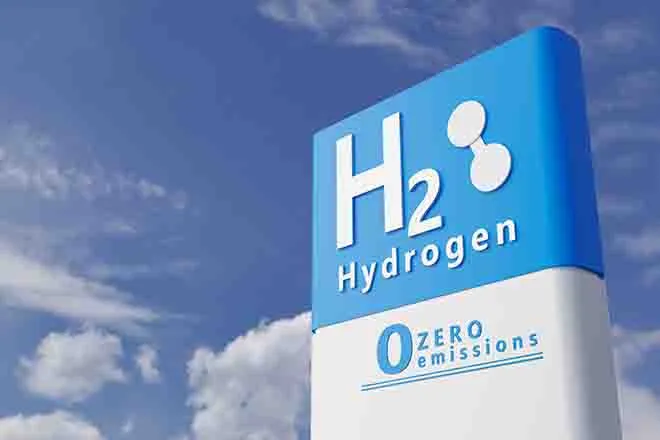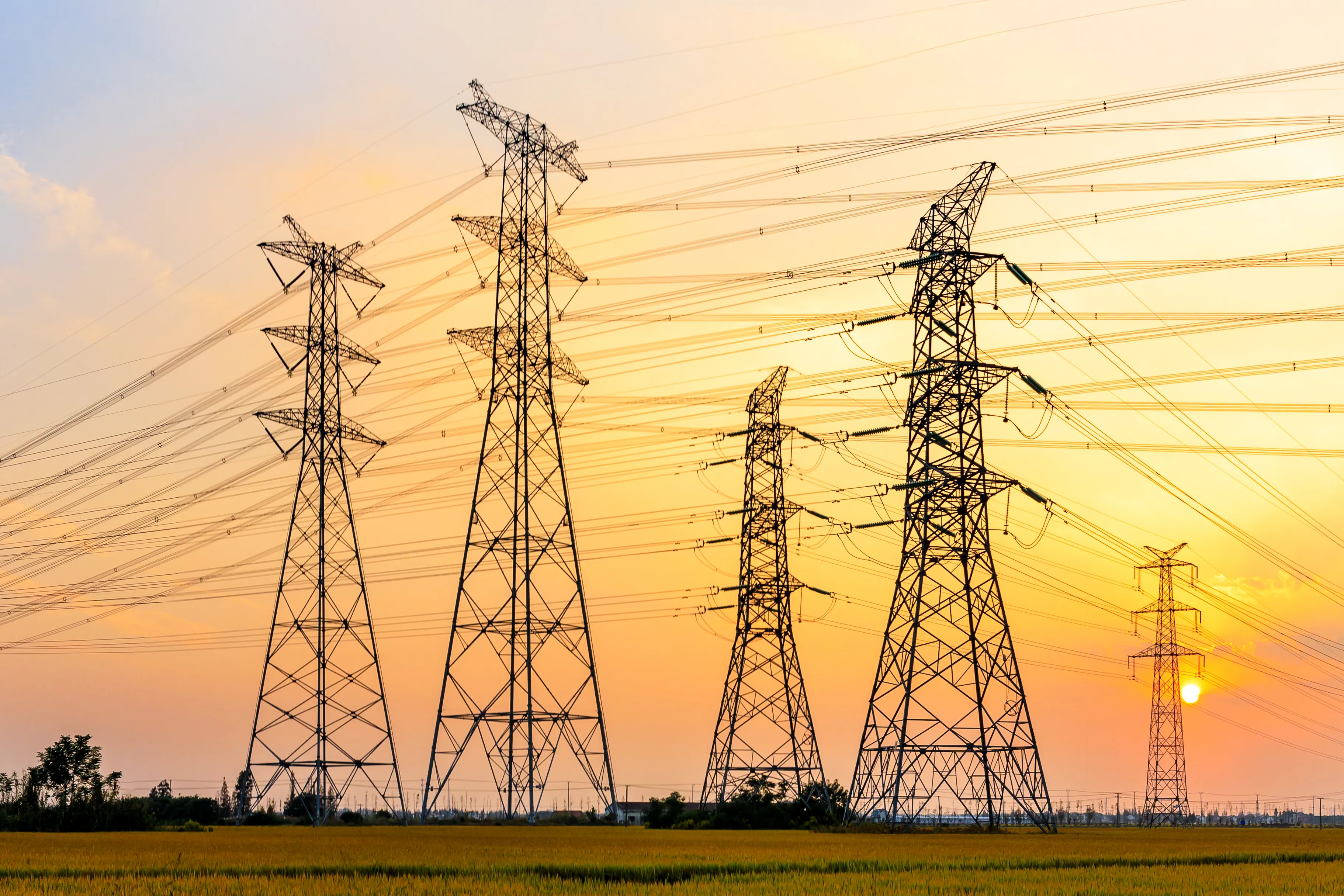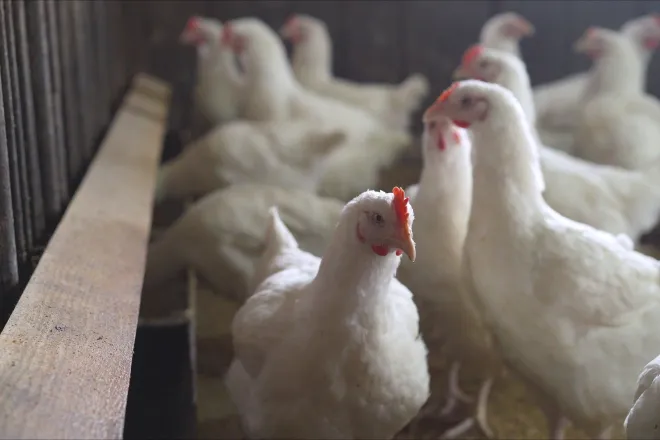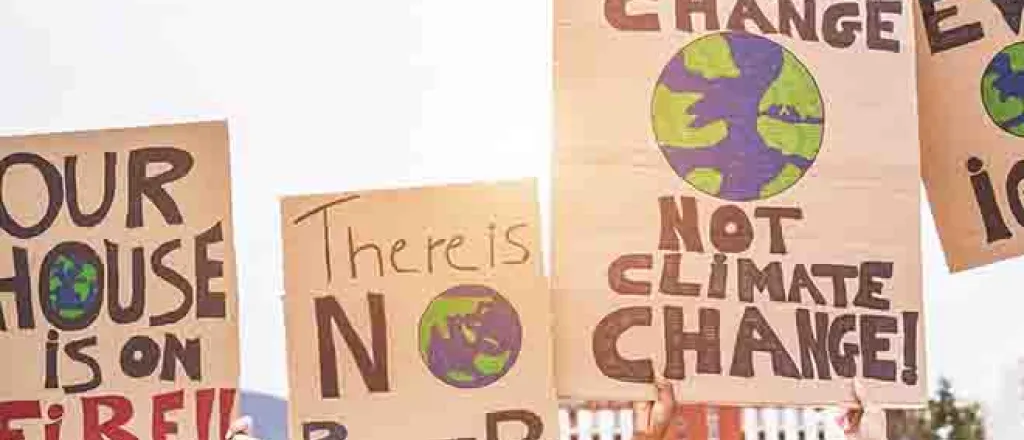
Colorado climate activists rally at Capitol to support oil and gas phaseout bill
(Colorado Newsline) Colorado climate activists and Democratic lawmakers say the time has come to confront one of the thorniest issues in the state’s transition to clean energy.
Even as Colorado has undertaken an ambitious effort since 2019 to reduce planet-warming greenhouse gas emissions across a wide range of industries, one thing hasn’t changed: Colorado oil and gas production, which increased sharply during the fracking boom of the 2010s, remains near record-high levels. Colorado drillers will pump roughly 15 million barrels of oil out of the ground this month — more than five times their average monthly total between 1981 and 2009.
Progressive environmental activists have long felt frustrated by this incongruity between Colorado’s lofty clean-energy ambitions and its ongoing fracking bonanza. For years, they’ve urged state policymakers to plan for a “phaseout” of oil and gas production to protect public health and begin to restrict the supply of the fossil fuels that are the root cause of climate change. And now, for the first time, such a proposal is being put on the table by lawmakers at the state Capitol.
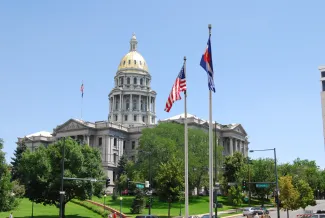
“Enough is enough,” state Sen. Sonya Jaquez Lewis, a Lafayette Democrat, said at a press conference alongside climate activists at the Capitol on Friday. “In order to meet our clean energy goals, we know we can’t keep drilling forever.”
Jaquez Lewis is one of the sponsors of Senate Bill 24-159, which would require Colorado oil and gas regulators to stop issuing new drilling permits by Jan. 1, 2030.
The phaseout is similar to one proposed by an initiative that grassroots climate groups are seeking to put on Colorado’s 2024 ballot. Activists rallied and met with lawmakers at the Capitol on Friday as part of an annual “Climate Lobby Day” organized by a coalition of more than 50 environmental groups, including 350 Colorado, Colorado Rising and GreenLatinos.
“We’ve been waiting a long time for this bill,” said Heidi Leathwood, a climate policy analyst for 350 Colorado. “We’re here today for our brave sponsors. We’re here to support them and inspire the same bravery from all of their colleagues.”
The first-of-its-kind bill, however, faces an uphill battle to become law. Its first test will come later this month in the Senate Agriculture and Natural Resources Committee, chaired by state Sen. Dylan Roberts, a moderate Democrat from Avon who played a pivotal role in blocking another climate priority, Democrats’ sweeping upzoning bill, in the Legislature last year.
Democratic Gov. Jared Polis’ administration, too, has consistently ignored calls to restrict the production of oil and gas in the name of fighting climate change, preferring to pursue a wide range of incentive-based policies aimed at making clean-energy technology cheaper and more accessible. Earlier this week, a Polis spokesperson told Newsline that the governor hadn’t reviewed the bill yet but is “skeptical of the overall direction.”
Jaquez Lewis said in an interview that while the Polis administration didn’t include a drilling phaseout in its latest climate-action roadmap, released earlier this week, that “doesn’t mean it can’t be a part of our process.”
“We’re just starting the conversation,” she said. “We’re all wanting to go the same direction. There’s lots of different ways to get there.”
Supply and demand
In addition to phasing out new drilling, SB-159 would strengthen Colorado laws relating to the cleanup of oil and gas wells, including by expanding the definition of a well’s “responsible party” to include previous operators. It would also direct the state’s labor department to study the likely impacts of the phaseout and issue a report on its findings by 2028.
The bill’s permitting phaseout wouldn’t prohibit the operators of Colorado’s 50,000 existing wells from producing oil and gas beyond the 2030 cutoff. A typical well can produce for 20 to 40 years, according to an industry group.
To climate activists, the case for such a phaseout could hardly be simpler: Scientists have concluded that to avert the most catastrophic impacts of global warming, the vast majority of known fossil-fuel reserves must be left in the ground. If the world hopes to limit average global temperature rise to less than 1.5 degrees Celsius, adhering to its remaining “carbon budget” requires not just a halt to major new oil and gas drilling projects but the rapid shutdown of at least 20% of the world’s “developed” oil and gas reserves, the nonprofit Oil Change International estimated last year.
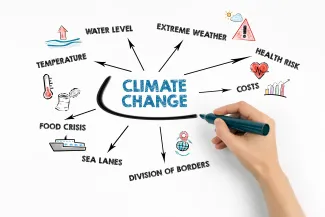
This so-called supply-side climate policy hasn’t proved popular with many U.S. policymakers, who have largely preferred demand-side policies that reduce the need for fossil fuels in the first place, like incentives for wind- and solar-powered electricity generation to replace coal plants or electric vehicles that don’t need gasoline. The $369 billion package of clean-energy spending passed by Democrats as part of 2022’s Inflation Reduction Act was made up almost entirely of these demand-side incentives.
Even as Colorado continues to make progress on reducing its overall emissions levels in the coming years, state climate and energy officials project that levels of oil and gas production in the state will remain high and even continue to rise through at least 2030. They argue that by driving up the price of gasoline and natural gas, supply-side policies would hit low-income Coloradans hardest and risk a backlash to its successful efforts to bring down emissions.
“Fundamentally, our strategy to reduce greenhouse gas emissions is to make clean energy cheap, rather than making fossil fuels expensive,” officials from the Colorado Energy Office wrote in their latest “roadmap” for emissions cuts.
That doesn’t satisfy environmental activists who are worried about the local pollution risks inherent in oil and gas development, and who don’t want the state contributing to a global problem by exporting oil and gas to be combusted elsewhere — which, Jaquez Lewis said Friday, “means Colorado gets the pollution, while corporations get the profit.”
State Sen. Kevin Priola, an Adams County Democrat, is the bill’s other Senate sponsor. He switched his party affiliation from Republican in 2022, citing, in part, his former party’s opposition to policies to tackle climate change.
Just five years ago, while still a Republican, Priola voted against Senate Bill 19-181, a landmark oil and gas bill that enacted stricter health and safety rules for drillers. But he spoke of being “educated” on climate and air-quality issues while serving on committees in the Legislature, and reflecting on his experiences growing up in Colorado.
“One of the reasons I support this legislation is I have seen the changes firsthand in what’s happening with our climate, and what’s happening with our air quality along the Front Range,” Priola said at Friday’s press conference.
“We’re already in the transition, and this bill plans ahead,” he added. “We’re looking forward to manage this transition, and give certainty to industry workers and communities, and plenty of time to plan.”
Colorado Newsline is part of States Newsroom, a nonprofit news network supported by grants and a coalition of donors as a 501c(3) public charity. Colorado Newsline maintains editorial independence. Contact Editor Quentin Young for questions: info@coloradonewsline.com. Follow Colorado Newsline on Facebook and Twitter.





